Science
The Bristol Bay Heritage Land Trust supports research that enables us to strategically focus our conservation efforts.
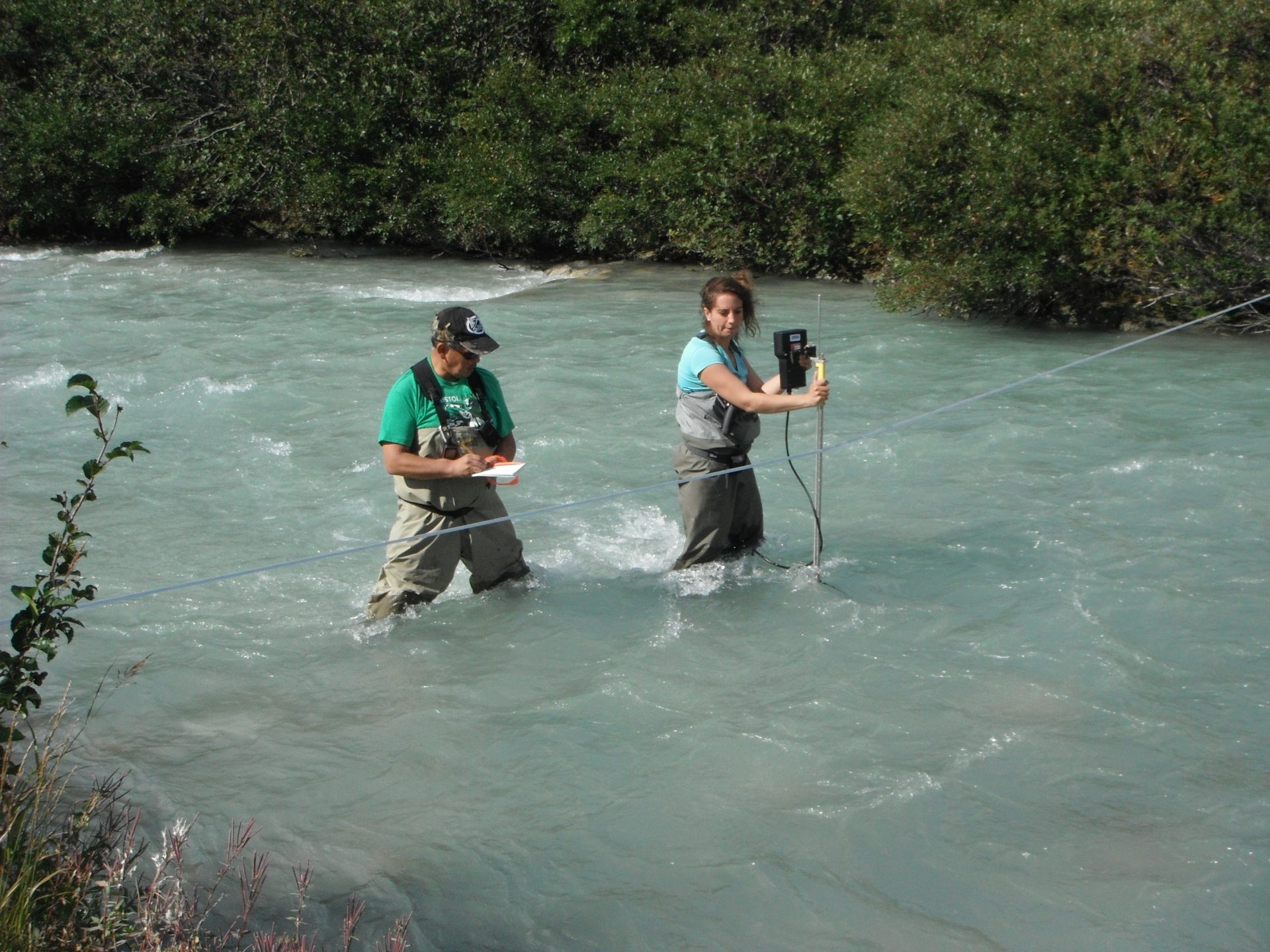
Stream Temperature
Rising water temperatures that may result from climate change have prompted an effort by the Bristol Bay Heritage Land Trust in partnership with government agencies, villages, Bristol Bay Native Association, the University of Washington and the University of Alaska, Anchorage to establish a broad stream temperature network for Bristol Bay. The project is underwritten by funding from the U.S. Fish & Wildlife Service through the Southwest Alaska Salmon Habitat Partnership. Understanding the water temperature regime in Bristol Bay may help the Land Trust identify for protection those cooler areas that may provide refuge for salmon and resident fish.
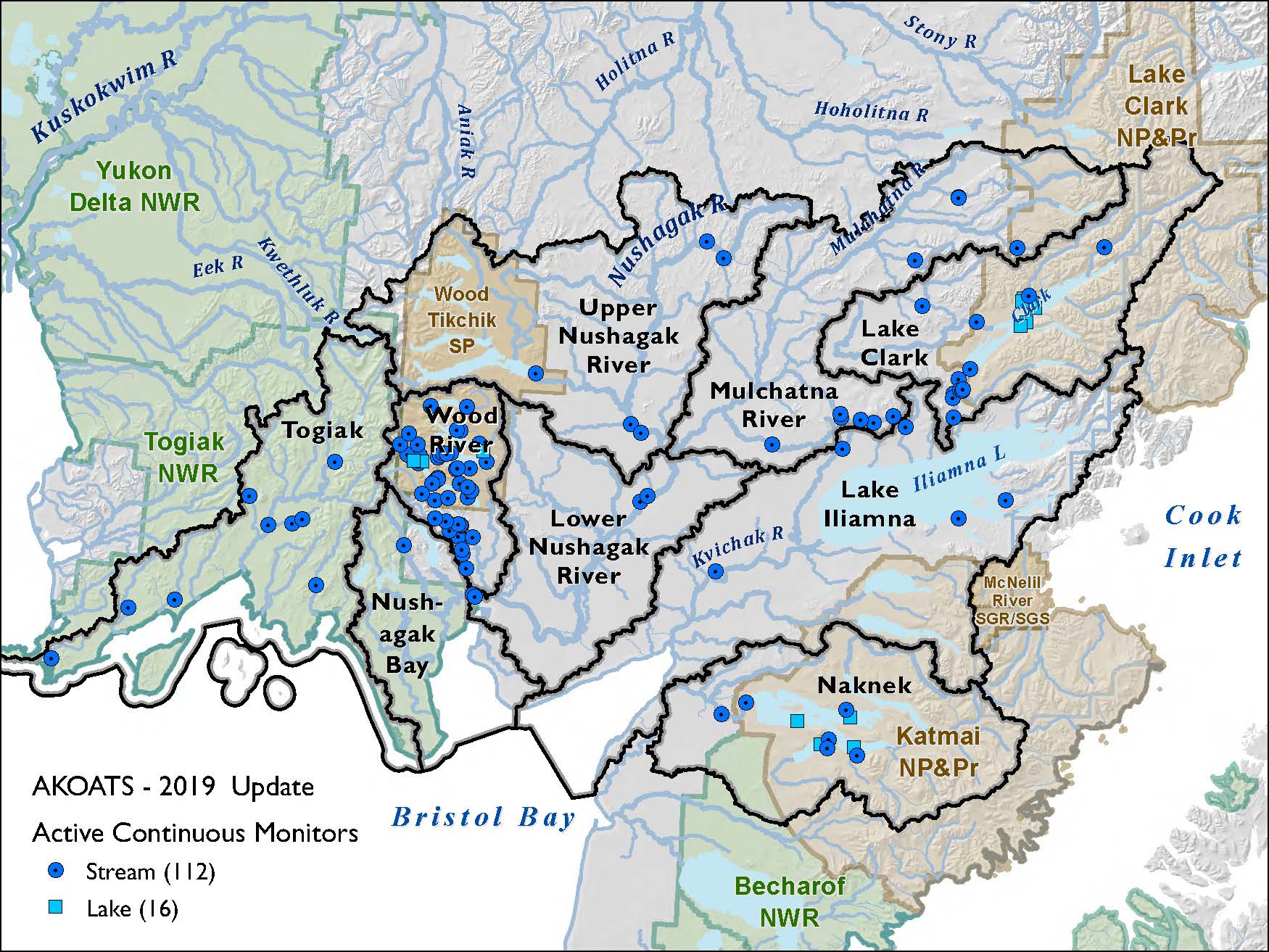
Information and Bristol Bay stream temperature data is posted to the Alaska Online Aquatic Temperature Site: https://accs.uaa.alaska.edu/aquatic-ecology/akoats/
Lake Iliamna Sockeye Salmon Genetics
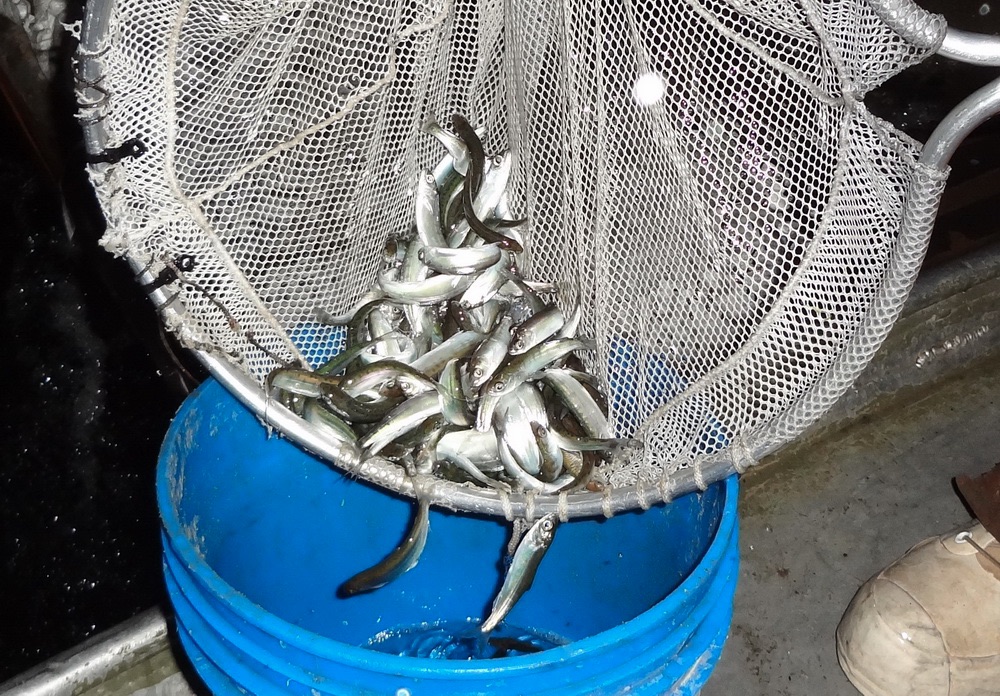
Lake Iliamna is the beating heart of salmon productivity in Bristol Bay, yet the salmon habitat of the lake is virtually unprotected. Until the Land Trust secured conservation easements over 13,509 acres in Northeast Lake Iliamna there was no permanently protected habitat on the lake.
The Land Trust has partnered with the genetics lab of the Alaska Department of Fish & Game and the Bristol Bay Science and Research Institute to fund the continued collection and analysis of Sockeye salmon genetic data begun in 2012 at the outlet of Lake Iliamna. Through the lens of genetics scientists have distinguished 3 distinct groups of Sockeye that spawn and rear in Lake Iliamna, and one group that swims through Lake Iliamna to Lake Clark. Analyzing the DNA of smolt out-migrating from the lake allows scientists to predict the strength of future returns and attribute run strength to particular genetic groups http://www.akssf.org/Default.aspx?id=3454. By identifying habitat associated with each genetic group this project helps the Land Trust determine where conservation efforts will provide the greatest benefits for long term salmon productivity in Lake Iliamna.
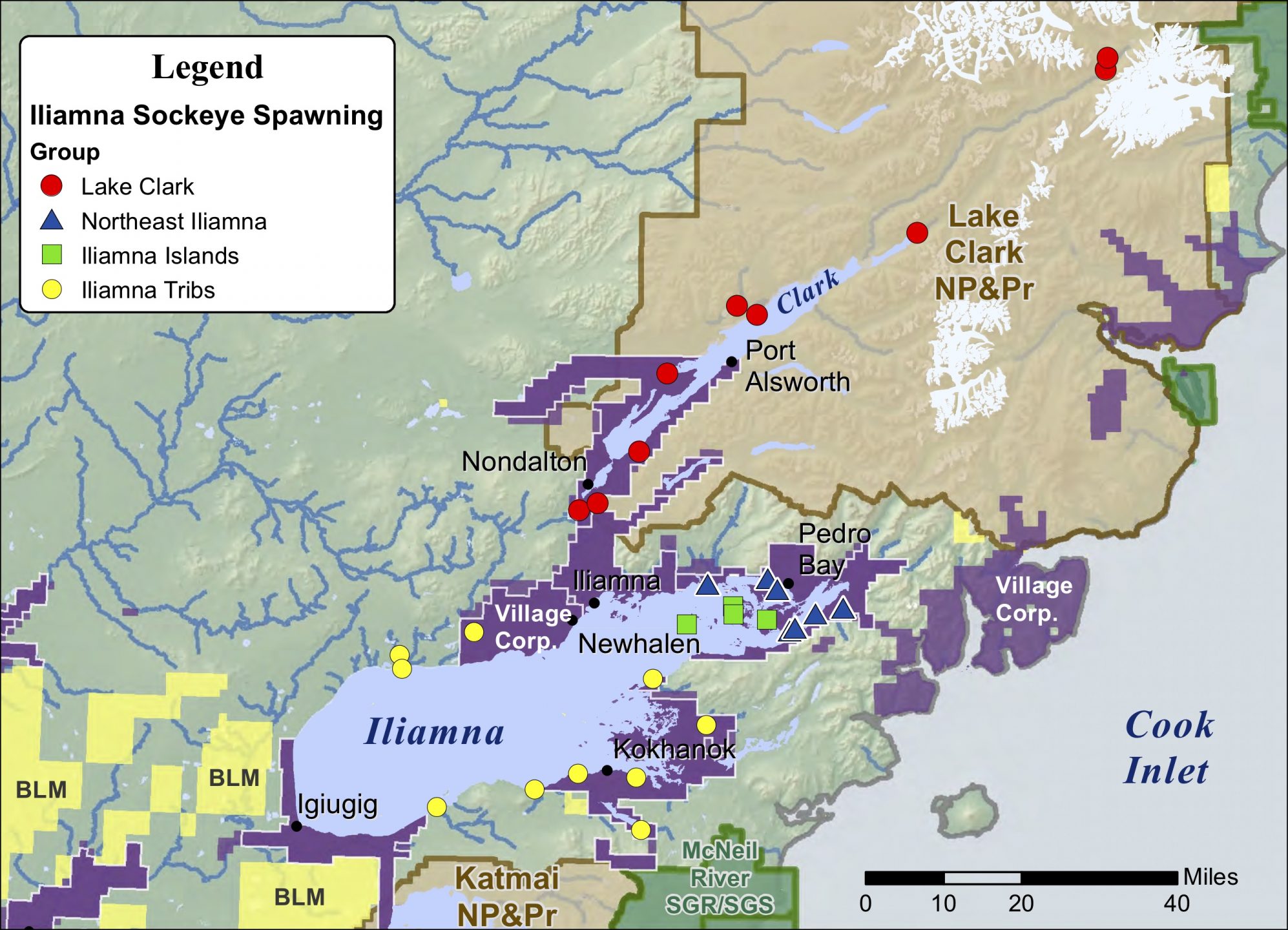
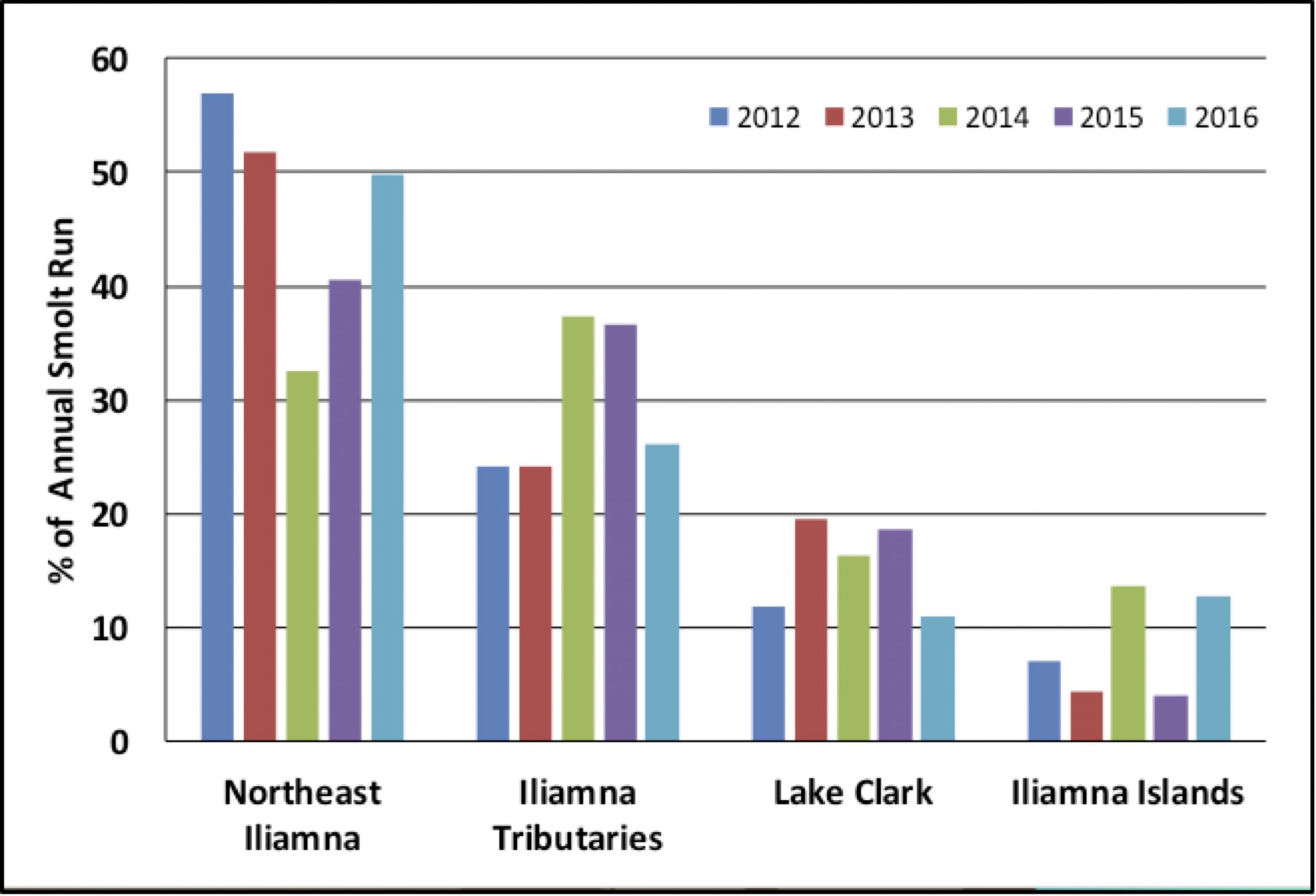
Southwest Alaska Salmon Habitat Partnership
The Bristol Bay Heritage Land Trust helped form the Southwest Alaska Salmon Habitat Partnership in 2000. The Partnership was recognized as a National Fish Habitat Partnership by the U.S. Fish & Wildlife Service in 2008. The Land Trust has served as the coordinator and fiscal agent for the Partnership since recognition. The national program has brought more than $2 Million Dollars into Southwest Alaska to support scientific studies tied to protecting fish habitat. https://www.fishhabitat.org/about/
The Partnership developed a Strategic Conservation Action Plan to guide its conservation work in the region. https://bristolbaylandtrust.org/wp-content/uploads/SWASHP-Plan-Final-2017-illustrated.pdf
Reports, Assessments, Scientific Papers supported with Partnership Funding
Monitoring Stream Habitats and Biological Communities in the Lime Hills Ecoregion of Bristol Bay. University of Alaska Anchorage, Alaska Center for Conservation Science . Rebecca Shaftel, Dan Bogan, Birgit Hagedorn, Kristy Jeffries, Leslie Jones, Dustin Merrigan, Sarah O’Neal, Dan Rinella, and Carol Ann Woody. 2019
2014 Stream Fish and Aquatic Habitat Surveys on Pedro Bay Corporation Lands in the Kvichak River Watershed. Michael Wiedmer, College of the Environment, University of Washington
Hydrologic Alterations from Climate Change Inform Assessment of Ecological Risk to Pacific Salmon in Bristol Bay, Alaska. Cameron Wobus, Robert Prucha, David Albert, Christine Woll, Maria Loinaz, Russell Jones. 2015
Riverscape Analysis of Nushagak & Kvichak Watersheds. Christine Woll, The Nature Conservancy in Alaska. 2013
Copper Toxicity in Bristol Bay Headwaters: Part 1 – Acute Mortality and Ambient Water Quality Criteria in Low-Hardness Water. Jeffrey M. Morris, Stephen F. Brinkman, Michael W. Carney, and Joshua Lipton. 201
Copper Toxicity in Bristol Bay Headwaters: Part 2—Olfactory Inhibition in Low-Hardness Water. Jeffrey M. Morris, Stephen F. Brinkman, Ryan Takeshita, Andrew K. McFadden, Michael W. Carney, and Joshua Lipton. 2018

 About
About